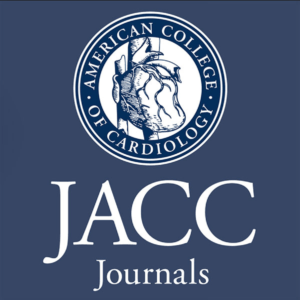 Effects of Reiki on Autonomic Activity Early After Acute Coronary Syndrome. Rachel S.C. Friedman, Matthew M. Burg, Pamela Miles, Forrester Lee, and Rachel Lampert J. Am. Coll. Cardiol. 2010;56;995-996.
Effects of Reiki on Autonomic Activity Early After Acute Coronary Syndrome. Rachel S.C. Friedman, Matthew M. Burg, Pamela Miles, Forrester Lee, and Rachel Lampert J. Am. Coll. Cardiol. 2010;56;995-996.
Heart rate variability (HRV) is a measure that is closely watched in the days after a heart attack. The study linked above showed Reiki can help improve this critical measure.
The study was published in the most prestitigious peer-reviewed conventional cardiology journal. Patients who received a 20-minute Reiki treatment within three days after suffering a heart attack showed improved mood and heart rate variability.
Let’s take a look at what this means in nontechnical language.
A heart attack is a stressful event which, like other stressful events, causes a stress response. A stressed body is less resilient, less able to cope with more stress. This means a patient who has just had a heart attack has a higher risk of having another one. Doctors are well aware of this dangerous cycle, and helping the body recover its resilience is a primary goal in cardiac care.
Improving heart rate variability after a heart attack
That’s why standard hospital care after a heart attack includes beta blockers, drugs that help the body recover its resilience. But beta blockers work slowly, and some patients cannot tolerate them.
The Yale researchers wondered if a non-pharmacologic intervention might be just as effective, work faster, be safe for all patients–and even help patients feel better?
In the high-tech acute cardiac care setting, why would doctors be interested in patients feeling better? Because subjectively feeling better is known to have objective effects on health. It is well documented that emotional stress negatively affects autonomic nervous system (ANS) function, and therefore heart disease (ANS controls heart rate).
Specifics of the Reiki and heart rate variability study
This randomized, controlled study looked at non-invasive, nondrug interventions to help patients recover faster from a heart attack. The study had three arms:
- Group 1 (12 patients) rested quietly without interruption.
- Group 2 (13 patients) listened to slow tempo, meditative, classical music.
- Group 3 (12 patients) received 20-minute Reiki treatment from Reiki-trained staff nurses.
Patients were measured initially for baseline, and again after the intervention, and the two sets of measurements were compared. The measurements from all groups were then compared to the others.
The impact of the intervention (rest, music, or Reiki) was measured in two ways, emotional state and heart rate variability (HRV), a physiologic measure that indicates if the patient’s body is recovering from the stress response.
The patients rated themselves on both positive states (happy, relaxed, calm) and negative states (stressed, angry, sad, frustrated, worried, scared, anxious).
Reiki study results
Reiki treatment improved all positive emotional states and reduced all negative states. Comparing the three groups, the Reiki group had the most positive changes in emotional state, and the resting control had the least.
Reiki treatment also improved HRV. The benefit shown was comparable to that seen in a study of beta blockers.
Additionally, the study showed that Reiki treatment can be offered in an acute-care setting. This is important. Sometimes interventions are found to be helpful but they are not feasible in a real life care setting. None of the patients experienced any adverse events.
In this study, Reiki treatment significantly improved mood and HRV compared to the resting and music control conditions. Many questions remain unanswered, such as how long does the benefit of a Reiki treatment last?
Much more research is needed. But this is a good start.
Related reading:
How Reiki Treatment Helps Doctors
Evaluating Reiki Research
____________________
The JACC paper has been translated into Spanish, Efectos del reiki sobre la actividad autonómica del paciente en el período inmediato a la presentación de síndrome coronario agudo.
This post has been translated into Spanish, El Tratamiento de Reiki Ayuda a los Pacientes con Ataques al Corazón.
INTRODUCTION to MEDICAL REIKI Recorded Training
Have you been waiting for online training to help you bring Reiki into hospitals and other health care settings? Wait no more. The Introduction to Medical Reiki recorded training gives skills and strategies to get you started in health care. Let’s get Reiki where it is needed, and raise the professionalism of our practice. Click here to learn more.
Want to stay in touch? Join the email list!

These are great news Pamela! Congratulations!
Congratulations to you and your associates for a fantastic breakthrough. Thanks for your efforts in this area. This is truly ground breaking, to be published in a medical journal. Again Congrats and keep up the great work.
Love and Light
bill
So grateful for this study. Thank you for keeping us up to date.
My dreams have come true…
I have been a nurse for 13 years and wanted to bring energy work to the field of medicine…the doors are now open,,,Thankyou Pamela for your dedication and efforts…
Thank you, Pamela, and congratulations! Your contributions benefit all of us.
Thanks for shining a light on the path!
HEARTfelt thanks Pamela for another step forward. This is such a big win and I shall be passing it on to my Doctor and other Medicos…woohoo a world with Reiki in hospitals, I love it.
Congratulations Pamela! You have done so much to bring Reiki into a more professional standing in the West and this is a major step forward for all of us in the Reiki community. Your ongoing writing and collaboration on projects such as this are so important and we are grateful. Thank you!!!
Obviously I am not a scientist or medical professional but I still wanted to say – FANTASTIC! Thank you for your impeccable and profound work in making Reiki available. This study sounds like a huge inroad.
One of the study’s unanswered questions you mentioned about how long the benefits of a Reiki treatment last made me remember something I’ve heard you say “Some Reiki is better than none”
Classical music is great while it’s playing and I wonder how long it’s benefits last?Wouldn’t it be great if we all did Reiki as frequently as we pop in a CD…
Thanks for sharing – this is awesome news!
Thanks, Alice. Yes, to my knowledge, this is the first mention of Reiki in a conventional medical journal. The others have been in journals which address integrative, complementary and alternative medicine.
The fact that JACC is such a prominent journal with such high standards (I’m told JACC is the second largest cardiology journal) indicates that conventional medicine is open to learning about Reiki if it is presented with scientific rigor and in language that is meaningful in the health care context.
My concern is that when Reiki practitioners present physicians with research that has not been published in peer-reviewed medical journals, the Reiki practitioners are really undermining their own efforts.
As Reiki practitioners, we have to reach medicine’s high standards if we want to be respected and create a credible presence for Reiki practice in health care and before the public.
Congratulations, Pamela! I know this must have been a long time in the works, especially getting it in a mainstream medical journal (is that a first?). That’s truly amazing and a real step in the right direction.
Alice
Wonderful, Melody. There are many resources on my website to support the conversation with your department head, and let me know if any specific questions come up that I can help with. Please let us know how it goes.
This was interesting reading, I am a cardiac interpreting technician at a prominant clinic and also have my reiki masters certificate, I am slowly introducing reiki to some whom I work with, some skeptical. So I will be showing a copy of this to my co-workers (mainly,to the head of our dept). Who knows what could happen?